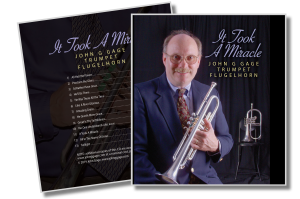Worship
The WHERE of Worship
“Hallelujah!Praise God in His sanctuary.Praise Him in His mighty heavens” Ps. 150:1)
Psalm 150 begins and ends with the word hallelujah which combines the Hebrew word for praise (hallel) with the name of Jehovah (jah or yah), giving the word the definition praise Jehovah.But the meaning is much deeper than this may imply. Hallelujah carries the thought of joyous praise in song, or to BOAST in God. In fact, the word hallel COULD refer to a person acting foolishly or madly…in other words, worshipping with abandon. Interestingly, this word is the same in just about any language!
In between the two hallelujahs we find the WHERE of worship, the WHY of worship, the HOW of worship and the WHO of worship.
The tabernacle was the center of Hebrew worship. According to Brevard S. Childs in his book The Book Of Exodus, (Philadelphia: The Westminster Press, 1974, p.547) “God created the whole world in six days, but he used forty to instruct Moses about the tabernacle. Little over one chapter was needed to describe the structure of the world, but six were used for the tabernacle.”
Exodus 35-40 describe the building of the tabernacle and its components. This place was to represent the presence of God among His people. King David wanted a more permanent representation of God’s presence, so his desire was to build a temple that would actually HOUSE the tabernacle of Moses. God wouldn’t allow David that privilege because David was a man of war (I Chronicles 22:8) and so God allowed David’s son Solomon to build the temple, funded in large part by David’s wealth. (I Chronicles 22: 14-16)
In I Corinthians 6:19, the apostle Paul states, “ ..do you not know that your body is a temple of the Holy Spirit in you, whom you have from God? And you are not your own…” Now the representation of God’s presence has moved from the tabernacle to the temple to the believer!
The word “Firmament” or “mighty heavens” means “expansion”, and denotes the arch of the skies above us. In Biblical times it was thought to support all of the heavenly bodies. Praise is to happen both above us and all around us! The ultimate expression of praise in the “heavenlies” is found in both Isaiah 6:3, “and they were calling to one another, “Holy, holy, holy is the Lord Almighty”, and Revelation 4:8, “Day and night they never stopped saying, “Holy, holy, holy is the Lord God Almighty.”
It is interesting to note that the Psalmist instructs praise to begin with US, with that which represents the presence of God on earth, and then moves in an expanded manner both UP and OUT. The “sanctuary” was initially a place of public worship, indicating that worship was to be a corporate event. From I Corinthians 6 we also can surmise that worship is to be a private, individual activity. Praise then emanates from both the individual and the local gathering of believers out into our surroundings, touching and influencing everything in its path. Our worship is to impact our culture!
In an article entitled “Thoughts on Worship and Culture”, John Piper states, “There is very little in the New Testament about the forms and style and content of corporate worship. Following Old Testament forms too closely contradicts the obsolescence of the wineskins. God must mean to leave the matter of form and style and content to the judgment of our spiritual wisdom — not to our whim or our tradition, but to prayerful, thoughtful, culturally alert, self-critical, Bible-saturated, God-centered, Christ-exalting reflection driven by a passion to be filled with all the fullness of God. I assume this will be an ongoing process, not a one-time effort.” (www.desiringgod.org, September 26, 1990)As we worship with sincerity and boldness, both wherever WE are, and wherever the CHURCH gathers, our culture will be impacted. And that statement begs the question, “is the glow of our private and public worship illuminating the culture around us”?







